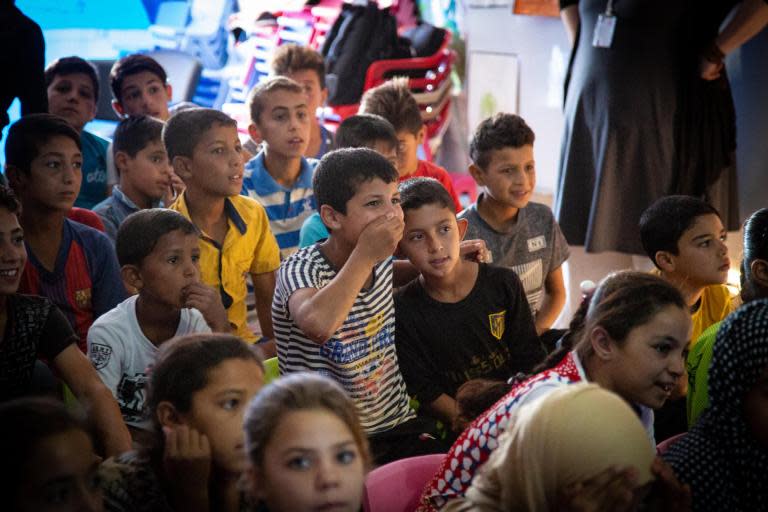After Isis: How one boy learnt to no longer be afraid
Hamid, 13, was once too afraid to leave his tent in Gamawa displacement camp in Duhok, but is now an avid painter and member of the camp’s many football teams.
He fled Isis in Mosul with his five brothers and sisters in 2016, after living two years under the brutal group.
When he first arrived in the camp, he was withdrawn and lashed out at his parents. But after two years of psychosocial support with War Child charity he says he is no longer afraid.
I love painting and I am much more outgoing now
Hamid, 13
“I love painting and I am much more outgoing now,” he says, showing a sketch book of cartoons, including popular mobile game Angry Birds.
His mother, 33 whose name has been withheld for security reasons, said they escaped under terrifying bombing as the Iraqi army moved into the city. In the days leading up to the ousting of Isis from Mosul the security forces also laid siege to the city, which meant the family had to live on cooking oil and tomato sauce.
“We had to move slowly with the children from street to street and there was gunfire from both sides. It was terrifying,” she says.
Hamid’s father Mahmoud, 35, told The Independent in Mosul that his children were subject to an intense propaganda campaign by Isis that forbade music as well as many games, most media and satellite channels. Instead they plastered the city with “media points” where TV screens played videos of slaughter in a bid to brainwash the youth.
Mahmoud said he had to intervene and save one child from his neighbourhood after his brother tried to knife him while re-enacting a beheading video he learnt from one of the Isis media stations. Meanwhile Mahmoud tried to convince his children that the gunfights between the fighters were just “wedding celebrations” – guns are often fired into the air in much of the Middle East to celebrate major life events.
“I decided not to send my children to school when Isis changed the curriculum. They lost two years of their lives,” he adds.
He said it had a profound effect on his children even after they left. When the children arrived in the camps they were initially afraid to play as it had been largely banned in Mosul. Singing was also forbidden and so they were confused.
“We are recovering and rebuilding the culture that the children lost.”

 Yahoo News
Yahoo News 
